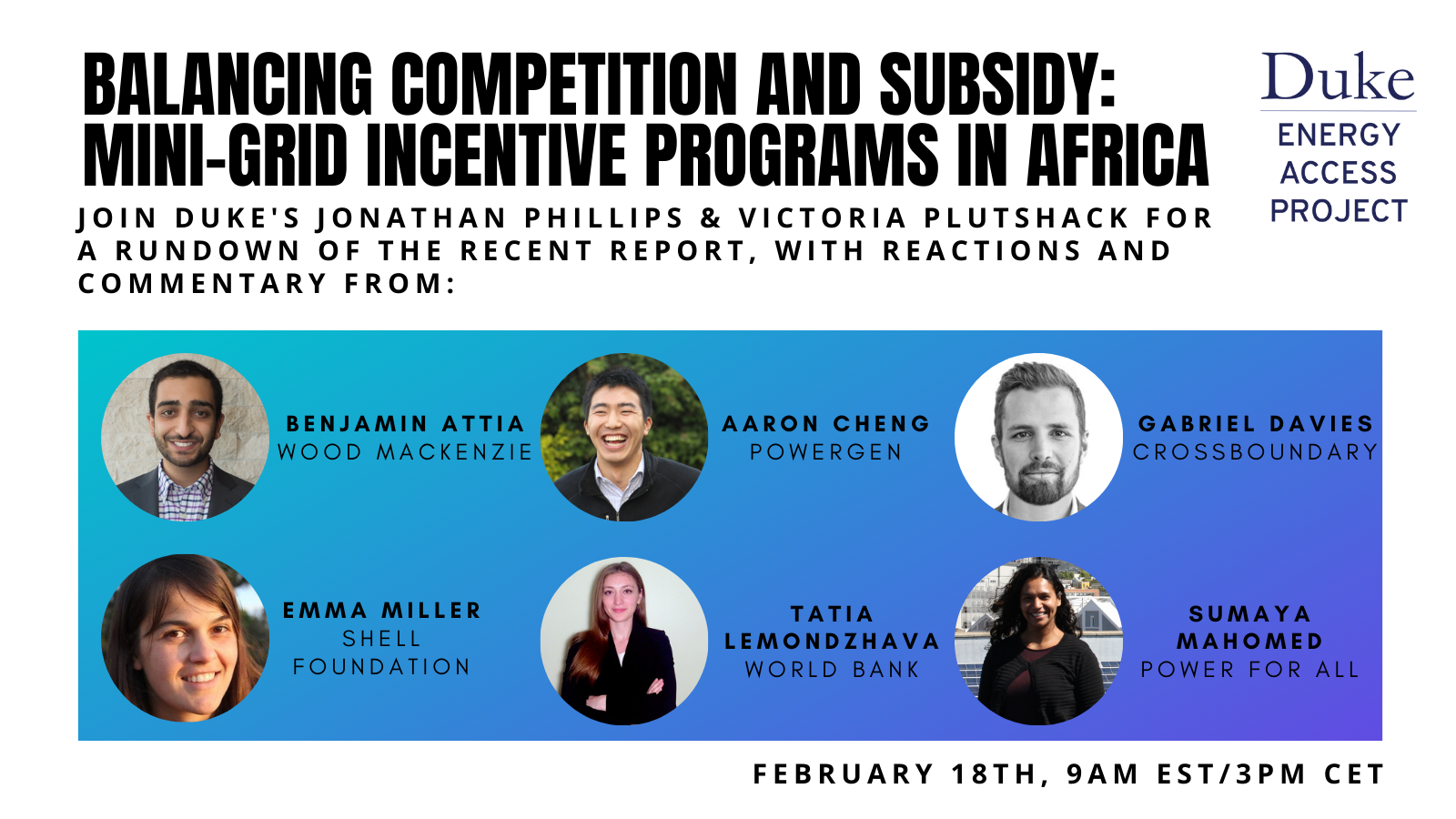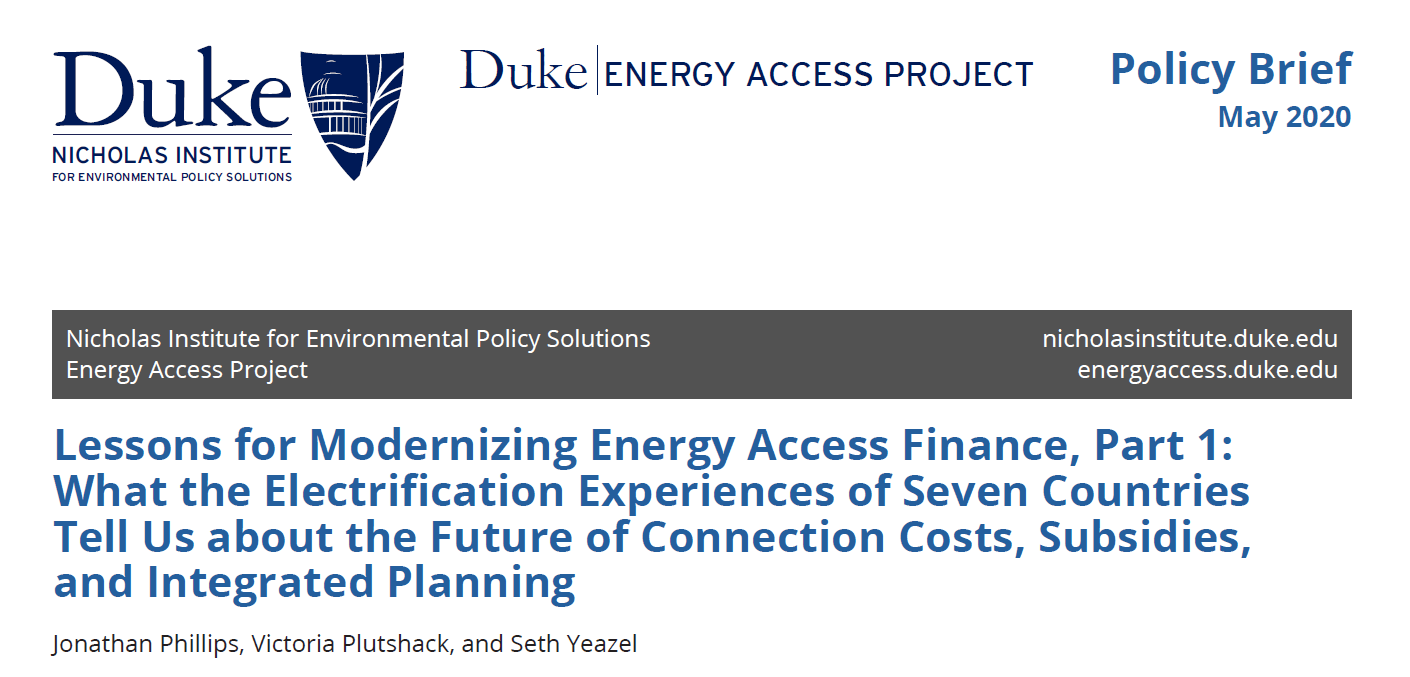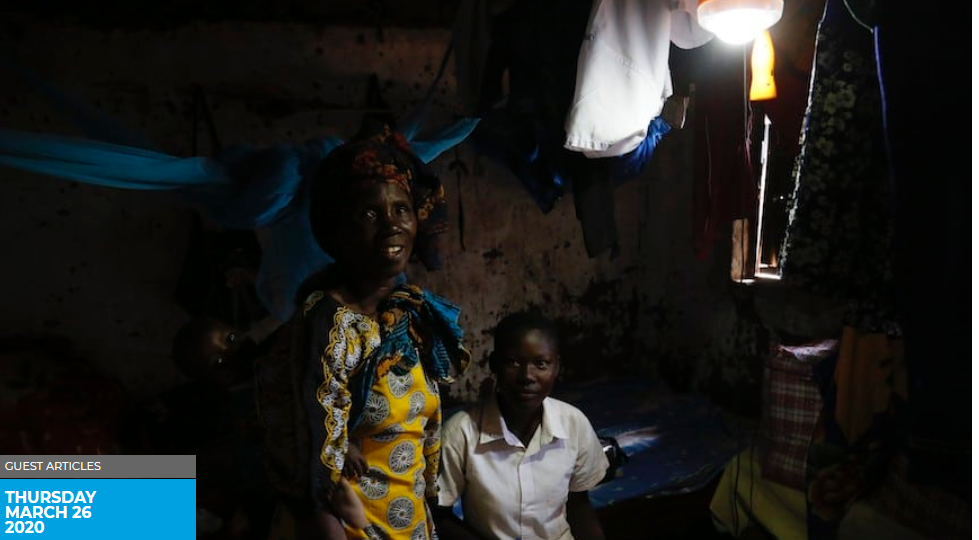In the News

Policy Design News
Prepaid meters promise profits for African utilities but success hinges on consumer response
Thomas Klug discusses the evidence surrounding prepaid electricity meter rollout in Africa.
Listen now! Balancing Competition & Subsidy: Mini-Grid Incentives Programs in Africa Webinar
What can we learn from countries trying to scale mini-grid deployment? In this webinar, hear early lessons from Africa in the latest report from the Energy Access Project at Duke, “Balancing Competition and Subsidy: Mini-grid Incentive Programs in Africa.” EAP’s Jonathan Phillips and Victoria Plutshack led the discussion with a host of experts in the field.
New Blog! Lessons from the proliferating mini-grid incentive programs in Africa
As governments put in place incentives to scale up mini-grid deployment, our team has reviewed 20 mini-grid programs in sub-Saharan Africa, in order to pull out some initial lessons.
What COVID-19 has cost the climate
Climate talks like the annual Conference of the Parties (COP) have led to many climate successes; informal conversations between international stakeholders at COP can become leverage for policy change at home, as seen in the case of Chile’s ambitious voluntary coal retirement scheme.
Benefits of Action to Reduce Household Air Pollution (BAR-HAP) Tool
Two of our team members, Marc Jeuland and Ipsita Das, assisted in developing the WHO Benefits of Action to Reduce Household Air Pollution (BAR-HAP) Tool, which is a planning tool for assessing the costs and benefits of different interventions to address the global burden of disease associated with cooking-related household air pollution.
An off-grid energy future requires learning from the past
The more things change, the more they stay the same. EAP’s latest in the Brookings Future Development blog explores the electrification experiences of seven countries, their program costs and the subsidies required to bridge the gap between the cost of providing last-mile electricity and what poorer customers are able to pay.
New Publication: Lessons for Modernizing Energy Access Finance, Part 1
Countries facing electricity access challenges today have more options and potential electrification pathways than ever before, but the initial cost of connecting new rural customers remains an expensive proposition. This brief explores the successful rural electrification experiences of seven case countries—Brazil, Chile, Laos, Peru, South Africa, Thailand, and Tunisia—looking specifically at the cost of connections and how subsidies and public financing were deployed to address the affordability challenge and facilitate energy access.
New Data and Technologies are Transforming Energy Access
Technologies like geospatial imagery, machine learning and affordable batteries are generating ever more innovative ways to target customers with off-grid energy solutions. But according to analysts at the Duke University Energy Access Project, public policy is struggling to keep up with these rapid-fire developments, leaving vast amounts of human capacity and productivity untapped. They explore how to address this disconnect between government and the private sector.








